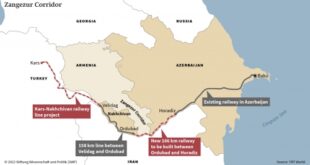 The Bush administration has used military analysts working for leading TV networks to dupe the public with propaganda dressed as independent analysis and generate favorable coverage of its unpopular wars.
The Bush administration has used military analysts working for leading TV networks to dupe the public with propaganda dressed as independent analysis and generate favorable coverage of its unpopular wars.
Â
“This was a coherent, active policy,” Kenneth Allard, a former NBC military analyst, told The New York Times on Sunday, April 20.
The daily examined 8,000 pages of e-mail messages, transcripts and records describing years of private briefings and trips to Iraq and Guantanamo obtained after winning a lawsuit against the Pentagon.
Â
It found that the administration has used military analysts with ties to military contractors to assess the its war policies.
Â
The analysts were invited to hundreds of private briefings by senior military leaders with significant influence over contracting and budget matters.
Â
They have been taken on Iraq tours, given access to classified intelligence and received briefings from top administration officials.
Â
“In turn, members of this group have echoed administration talking points, sometimes even when they suspected the information was false or inflated,” said the Times.
Â
“Some analysts acknowledge they suppressed doubts because they feared jeopardizing their access.”
Â
The Times found that Pentagon recruited more than 75 military analysts, largely affiliated with Fox News, NBC and CNN.
Â
They were referred to in internal Pentagon documents as “message force multipliers” or “surrogates” who could be counted on to deliver administration’s “themes and messages” to millions of Americans “in the form of their own opinions.”
Â
Some recruits were influential either because they were sought out by radio hosts, or because they often published op-ed articles or were quoted in magazines, Web sites and newspapers.
Â
Trojan Horse
Â
The Bush administration used the analysts as a rapid reaction force to gainsay what it viewed as critical news coverage, said the Times.
Â
“…the Bush administration has used its control over access and information in an effort to transform the analysts into a kind of media Trojan horse – an instrument intended to shape terrorism coverage from inside the major TV and radio networks.”
Â
The mass-circulation daily cited a carefully orchestrated tour of a group of military analysts to Guantanamo in 2004 amid mounting criticism of the notorious detention camp.
Â
They immediately went on air to assert that all detainees were treated humanely.
Â
“The impressions that you’re getting from the media and from the various pronouncements being made by people who have not been here in my opinion are totally false,” analyst Donald W. Shepperd, a retired Air Force general, said on CNN.
Â
“The place is very professionally run,” said Montgomery Meigs, a retired Army general and NBC analyst.
Â
The Times said that some analysts were behaving as if they were operating behind the enemy lines.
Â
“Some offered the Pentagon tips on how to outmaneuver the networks.”
Â
Others even warned of planned stories or sent the Pentagon copies of their correspondence with network news executives.
Â
“Good work,” Thomas G. McInerney, a retired Air Force general, consultant and Fox News analyst, wrote to the Pentagon after receiving fresh talking points in late 2006.
Â
“We will use it.”
Â
The administration also used military analysts to gain support to the increasingly unpopular war in Iraq which has claimed more than 4,000 US soldiers since 2003.
Â
“Please let me know if you have any specific points you want covered or that you would prefer to downplay,” John C. Garrett, analyst for Fox News, wrote in 2007 before President Bush went on TV to describe the Iraq surge strategy.
Â
“These records reveal a symbiotic relationship where the usual dividing lines between government and journalism have been obliterated,” said the Times.
Source: Agencies
Kavkaz Center
 Eurasia Press & News
Eurasia Press & News



